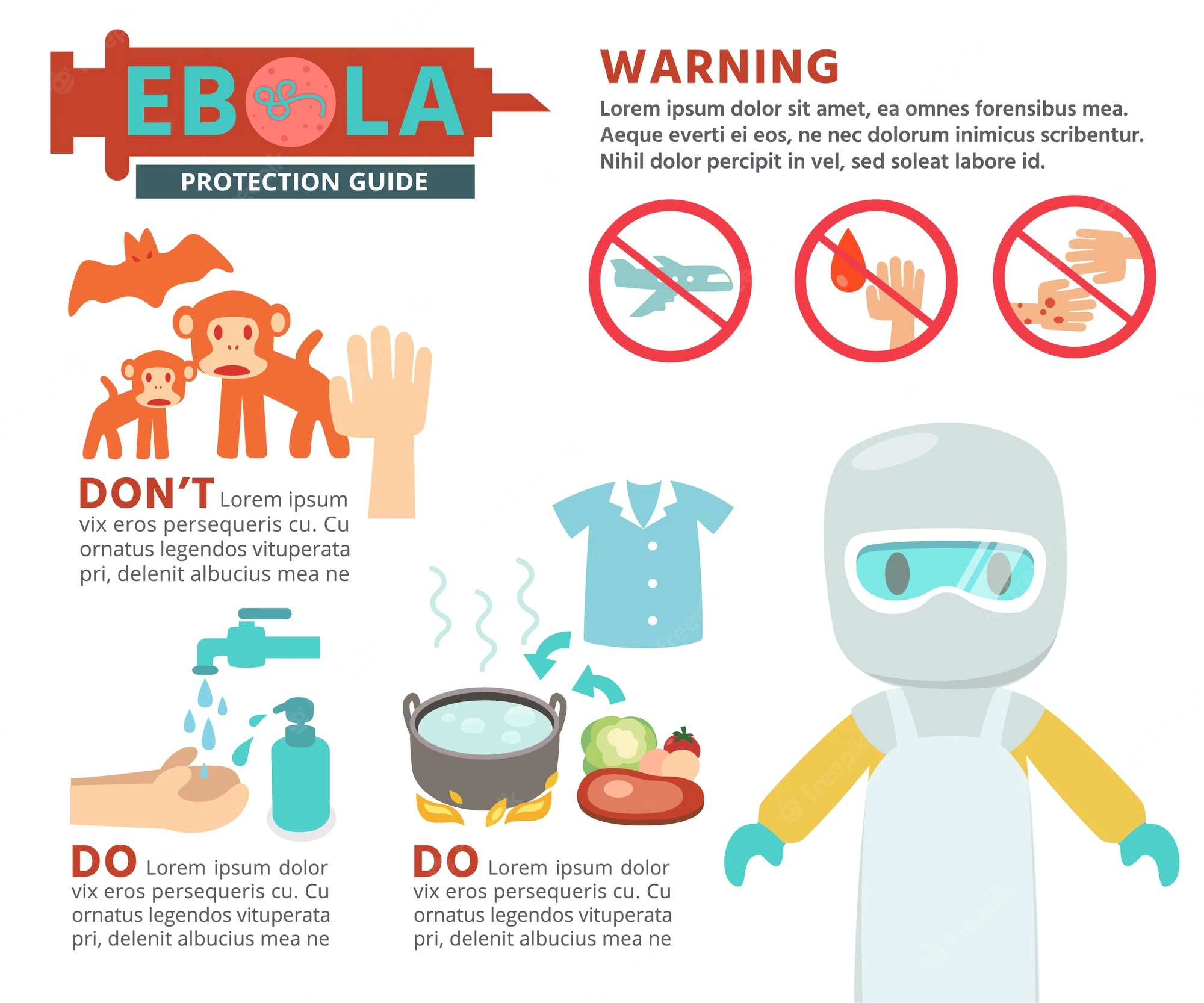
Erupting of the Ebola virus outbreak in West Africa in 2014 has sent shock waves across the world. The disease is now pandemic, with no signs of abatement anytime soon. The World Health Organization (WHO) has acknowledged the disease as one of the most critical health challenges facing humanity today. As an alarming consequence, fear and panic have taken over societies especially those living in African regions where the virus has been detected leading to mass hysteria, quarantines, and an overwhelming sense of helplessness. The good news is that precautionary measures and standard precautions must be taken by all individuals to reduce the risk of contracting this disease. If you reside in a high-risk zone or frequently travel to these areas, it is important that you are aware of potential symptoms and know how you can protect yourself from contracting Ebola. Let’s take a look at how you can stay safe from this deadly virus…
What is Ebola?
Ebola is a rare and deadly viral disease that can cause severe bleeding inside the body, including the inside of the mouth, gums, nostrils, and even the eyes. Ebola virus disease is not contagious like other diseases like smallpox, plague, or influenza. You cannot catch Ebola from coughing, sneezing, or touching an infected person. The virus spreads through direct contact with the blood or other body fluids of a person who is sick with or has died from Ebola, or with materials that have been contaminated by the blood or body fluids of someone with Ebola. The Ebola virus was first discovered in 1976 in what is now the Democratic Republic of Congo. Since then, there have been sporadic outbreaks in Africa and other parts of the world. The 2014 outbreak in West Africa is the largest and most complex Ebola outbreak ever recorded. More than 28,000 people have been diagnosed with the disease, and over 11,000 have died.
How does the virus spread?
The Ebola virus is transmitted through direct contact with blood or other body fluids of a person who is sick with or who has died from Ebola, or with materials that have been contaminated by the blood or body fluids of an infected person. When threatened, the virus attaches to the cells in the host’s body and enters the cell with the help of a protein known as haemagglutinin. Thereafter, the virus uses the cell’s own replication machinery to replicate itself inside the cell and is released when the cell dies. This is when the infection is contagious. The Ebola virus is found in the blood, vomit, urine, stool, saliva, and sweat of infected people. You can also get the virus by touching something that has the Ebola virus on it and then touching your mouth or nose.
Symptoms to watch out for
Fever or elevated temperature above 38°C – Severe headaches – Fatigue or feeling unwell – Generalized or muscular pain – Generalized swelling or fluid build-up in the legs or arms – Abdominal pain, nausea, or vomiting – Bleeding from the eyes, ears, gums, blood in urine or stools – Rash or redness on the skin – Swollen lymph nodes – Unusual bleeding or bruising – Decreased kidney function – Decreased liver function
How to protect yourself from contracting Ebola
Wash your hands thoroughly and often: One of the best ways to avoid the Ebola virus is to practice good hand hygiene. This means washing your hands regularly with soap and water or an alcohol-based hand sanitizer. Make sure to clean your hands before eating or touching your face. – Cover your nose and mouth when coughing or sneezing: Covering your nose and mouth when coughing or sneezing helps prevent you from getting sick. If you don’t have a tissue, you can cough or sneeze into your elbow, or you can use your shoulder. – Avoid touching your eyes, nose, and mouth: If you are in a high-risk area, do not touch any open wound or blood. Do not touch and/or comb your hair if you have open cuts on your hands. Make sure to wear gloves when handling any blood or bodily fluid samples. – Wash your clothes separately: Make sure to wash your clothes separately from the clothes of those who are uninfected. This will reduce the risk of your clothes contaminating others’ clothes. – Stay away from people who are sick or who have died from Ebola: Avoid contact with people who have symptoms of Ebola or who have died from the virus. People who are infected or who have died from Ebola are extremely contagious and can infect others.
Conclusion
The Ebola virus is a rare but deadly infection that is currently spreading quickly in Africa. This virus is transmitted through direct contact with blood or other body fluids of a person who is sick with or who has died from Ebola, or with materials that have been contaminated by the blood or body fluids of an infected person. Symptoms of Ebola include fever or elevated temperature, severe headaches, generalized or muscular pain, generalized swelling or fluid build-up in the legs or arms, abdominal pain, nausea, vomiting, bleeding from the eyes, ears, gums, blood in urine or stools, rash or redness on the skin, swollen lymph nodes, and unusual bleeding or bruising. If you are traveling to a country where Ebola is a concern, take precautions to protect yourself. Wash your hands thoroughly and often, cover your nose and mouth when coughing or sneezing, avoid touching your eyes, nose, and mouth during travel, and wash your clothes separately from the clothes of others.


